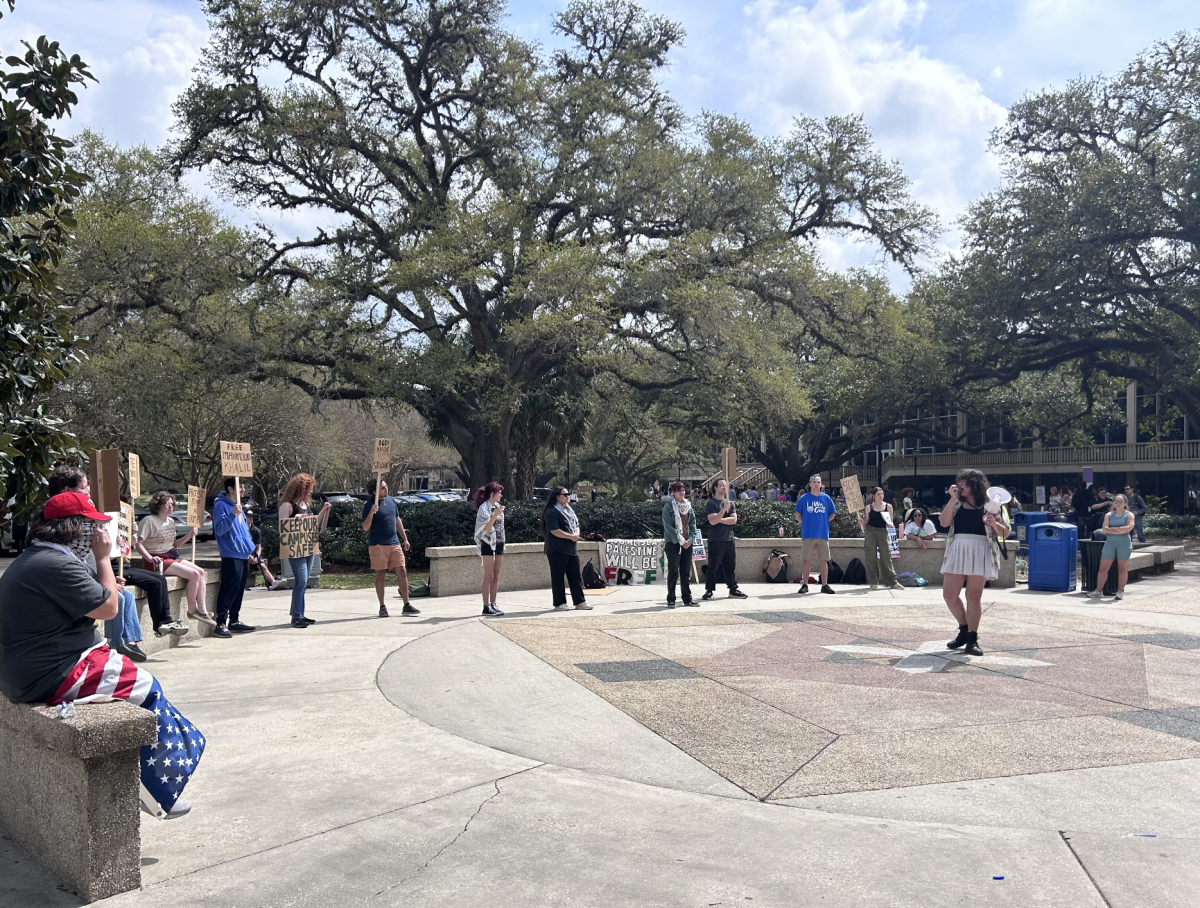The Office of Occupational and Environmental Safety is closing the recycling loop on some of the waste leaving campus. The Environmental Protection Agency awarded the Office of Facility Services a $15,000 grant to fund a biodiesel processor which will fuel a vehicle for the Office of Occupational and Environmental Safety.The grant money, received Aug. 17 through an organization called CenSARA, will buy and pay to install the processing equipment, according to Michael Hooks, OES assistant director. OES made an agreement with the EPA to perform a supplemental environmental project. The department decided to use alternative fuels in its vehicle for the project. Hooks said the vehicle collects hazardous materials and waste around campus daily as part of the OES hazardous chemical waste program. Hooks said the use of biodiesel has a positive impact on campus sustainability.Katie Peterson, president of Environmental Conservation Organization, said ECO is happy with the University’s efforts to become more environmentally friendly.”We’re happy to see the administration is taking the initiative toward sustainability,” Peterson said. “Biodiesel is a great option.”Denise Scribner, campus sustainability manager, said biodiesel is a clean alternative to petroleum.”It reduces soot and smog up to 50 percent,” Scribner said in an e-mail to The Daily Reveille. “This helps reduce health risks and greenhouse gas emissions.”Hooks said OES modeled its idea after the W. A. Callegari Environmental Center, the AgCenter’s research facility for composting waste and for water and air quality.”They produce their own biodiesel from recycled vegetable oil from campus dining halls as part of research,” Hooks said.The Cellegari Center collects waste from the 459 Commons and converts it to biodiesel, which is used in Facility Services Landscape equipment or sold, Hooks said.”If we were going to be using biodiesel, we could either get it from them, buy it off the street as a commodity or we could make it,” Hooks said. “We decided to make it.”Hooks said OES could collect vegetable oil waste from other campus cafeterias and reuse it for fuel. Rachel Theriot, theater sophomore, said she likes the idea of using what is already available on campus.”It’s important to decrease the amount of waste in order to be green,” Theriot said. “We won’t get very far if we waste what we have.”The equipment should be installed by December and first-run productions will be ready by spring, Hooks said.Hooks said OES will increase the capacity and production if the biodiesel becomes more in demand.”It would be great if we could one day trap all the waste vegetable oil that leaves campus and turn it into biodiesel to be used all over campus as an alternative fuel,” Hooks said. “We could even have a campus filling station.”Peterson said ECO is pleased with the progress.”We’re happy the University is moving forward and thinking long-term,” she said. “LSU is making it work.” —–Contact Sarah Eddington at [email protected]
OES receives $15K federal grant
September 4, 2009



